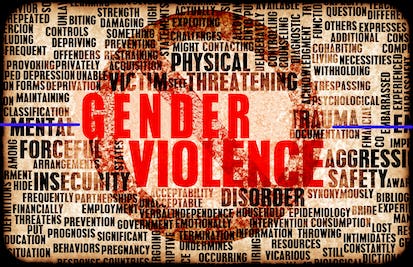- Level Foundation
- Duration 22 hours
- Course by Johns Hopkins University
-
Offered by

About
This course introduces participants from the healthcare sector to gender based violence (GBV), including global epidemiology of GBV; health outcomes; seminal research; and clinical best practices for GBV prevention, support, and management. A core curriculum is supplemented by lectures that contextualize the content with specific examples and programs from around the world. The core curriculum introduces learners to a global perspective on gender based violence (GBV), and includes a review with Dr. Claudia Garcia-Moreno of the new WHO guidelines on responding to violence. Students who wish to receive Honors Recognition will complete the honors module, which expands on the core material and highlights special circumstances and programs. This is an in-depth course with 2 components: 1) Core curriculum introduces GBV from a global perspective, with an emphasis on ensuring a strong health sector response to GBV and teaching key competencies for social workers, physicians, nurses, midwives, community health workers, counselors, and other healthcare workers. Completion of the core content is required for students to pass the course. 2) Honors curriculum offered by experts from around the world helps students dive deeper into certain issues, and touches on unique populations and specialized topics. Completion of Honors curriculum is required for those students who wish to receive a Certificate of Accomplishment with Honors. After taking the course, students will be able to: ● Describe the global epidemiology of leading forms of GBV and the evidence linking GBV to poor health. ● Articulate the challenges, strategies, and WHO guidelines for integrating GBV response within the health sector. ● Describe the components of a comprehensive clinical assessment, treatment, and management of a GBV survivor. ● Describe the appropriate psychosocial support and management of a GBV survivor. Module 1 – Introduction to GBV- Epidemiology and Health Impact GBV comes in a variety of forms, each with health consequences for the survivor. An understanding of these issues helps inform a comprehensive and multi-sectorial response for preventing and responding to GBV. Module 2 – Health Care Response, Screening, and Psychosocial Support Recognition of health impacts of GBV has led to calls to address GBV within the health sector. Support for GBV survivors extends beyond clinical exam and assessment. Safety planning, harm reduction, and access to psychosocial support must be ensured. Module 3 – Clinical Care for GBV Survivors Caring for GBV survivors requires compassionate, confidential, and nondiscriminatory clinical assessment. Competent medical and forensic examination, along with appropriate documentation, is essential. Honors Module – In-Depth Information and Special Topics This module provides additional materials for those who wish to explore specialized topics and gain a more advanced grasp of the complexities of addressing gender-based violence. Core course topics are expanded upon, and special populations and programs are highlighted. Special topics include violence in humanitarian settings, against adolescents and sex workers, and human trafficking. Further information is provided on epidemiology, policy, and ethical guidelines, as well as the use of mHealth in GBV screening and care. We’ll cover the unique challenges of GBV research, and explore programs that encourage men and boys to be engaged in the prevention of violence against women. Acknowledgments This course is a project of the Johns Hopkins Center for Clinical Global Health Education. We would like to gratefully acknowledge the following collaborators: ● Centre for Enquiry into Health and Allied Themes (CEHAT) ● International Center for Research on Women's (ICRW) Asia Regional Office ● Center on Gender Equity and Health at University of California, San Diego ● Division of Global Public Health at University of California, San Diego ● World Health Organization ● RTI International ● Swayam ● Johns Hopkins Bloomberg School of Public Health, Center for Public Health and Human Rights ● Johns Hopkins Bloomberg School of Public Health, Department of Population, Family & Reproductive Health ● Johns Hopkins School of Nursing This course is made possible through the generosity of the Ujala Foundation, the Vijay & Marie Goradia Charitable Foundation, and the Wyncote Foundation.Modules
Introduction to GBV - Epidemiology and Health Impact
2
Assignment
- Pre-Test - Epidemiology and Health Impact
- Post-Test - Epidemiology and Health Impact
1
Peer Review
- Week 1 Assignment: What are the Health Implications of GBV?
1
Discussions
- Violence in your communities
7
Videos
- Welcome to Week 1
- Epidemiology - Health Impact Frameworks
- Confronting Gender Based Violence
- Gender Based Violence and Sexual and Reproductive Health
- Gender Based Violence and HIV
- Bonus Lesson: Case Study from Rural Uganda- Integrating Violence Prevention into HIV Programming
- Bonus Lesson: Country Case Study: India (Part 1)
3
Readings
- Welcome to the course and meet our moderators
- Syllabus
- Week 1 Reading List
Week 1 Honors Materials (Complete both)
2
Assignment
- Post-Test: Policy and Practice
- Post-test: Engaging Men and Boys in Gender Based Violence
2
Videos
- Policy and Practice
- Engaging Men and Boys in Gender Based Violence Programs in India
1
Readings
- Week 1 Honors Reading List
Health Care Response, Screening, and Psychosocial Support
2
Assignment
- Pre-Test - Health Care Response and Screening
- Post-Test - Health Care Response and Screening
1
Peer Review
- Week 2 Assignment: What Does the Screening for GBV Look Like?
1
Discussions
- Gender-based violence assessments
7
Videos
- Welcome to Week 2
- Psychosocial Support for Survivors of SV/GBV, Stages of Change Approach
- Safety Planning and Harm Reduction for Survivors of GBV
- Part 1- Health Care for Women Subjected to Intimate Partner Violence or Sexual Violence: WHO Clinical and Policy Guidelines and Clinical Handbook
- Part 2- Health Care for Women Subjected to Intimate Partner Violence or Sexual Violence: WHO Clinical and Policy Guidelines and Clinical Handbook
- Bonus Lesson: Pigs for Peace: Livestock Microfinance Intervention to Improve Health and Economic Security in the Democratic Republic of Congo
- Bonus Lesson: Swayam's Work and Pespectives on Violence Against Women
1
Readings
- Week 2 Reading List
Option 1: GBV Research, Ethics and Safety
1
Assignment
- Tracking the Problem: GBV Research, Ethics and Safety
1
Videos
- Tracking the Problem: GBV Research, Ethics and Safety
Option 2: Lancet Series on Violence Against Women and Girls
1
Assignment
- Lancet Series on Violence Against Women and Girls
1
Videos
- Lancet Series on Violence Against Women and Girls
Clinical Care for GBV Survivors
2
Assignment
- Pre-Test - Clinical Care for GBV Survivors
- Post-Test - Clinical Care for GBV Survivors
1
Peer Review
- Week 3 Assignment: What Measures are Needed for a Comprehensive Response, Inclusive of a Referral Network, Psychosocial Support, Harm Reduction, Medical Care and Management for GBV Survivors?
1
Discussions
- Minimizing consequences of gender-based violence
6
Videos
- Welcome to Week 3
- Providing Competent, Compassionate, and Confidential Care to Survivors of Gender Based Violence
- Direct Medical Care for Survivors of Gender Based Violence
- Treatment and Disease Prevention for Survivors of Gender Based Violence
- Medical Forensic Examination in Low Resource Settings
- Bonus Lesson: Country Case Study: India (Part 2)
1
Readings
- Week 3 Reading List
Option 1: Using Health as an Entry Point to Address Intimate Partner Violence: Insights from India
1
Assignment
- Using Health as an Entry Point to Address Intimate Partner violence
1
Videos
- Using Health as an Entry Point to Address Intimate Partner Violence: Insights from India
Option 2: Violence Against Women and the Role of Health Professionals
1
Assignment
- Violence Against Women and Role of Health Professionals
1
Videos
- Violence Against Women and Role of Health Professionals
1
Readings
- Honors Week 3 Option 2 Reading List
Additional Materials and Wrap-Up
1
Discussions
- Hope in the field of gender-based violence
3
Videos
- Welcome to Week 4
- Bonus Lesson: mHealth for GBV-related Screening and Care
- Bonus Lesson: Extended Lecture on Gender Based Violence: Epidemiology - Health Impact - Frameworks
Option 1: Gender-Based Violence and Adolescents
1
Assignment
- Gender-Based Violence and Adolescents
1
Videos
- Gender-Based Violence and Adolescents
1
Readings
- Honors Week 4 Option 1 Reading List
Option 2: Responding to Sexual Violence/GBV in Humanitarian Settings
1
Assignment
- Responding to Sexual Violence/GBV in Humanitarian Settings
1
Videos
- Responding to Sexual Violence/GBV in Humanitarian Settings
1
Readings
- Honors Week 4 Option 2 Reading List
Option 3: Violence, Sex Work and Sex Trafficking
1
Assignment
- Violence, Sex Work and Sex Trafficking
1
Videos
- Violence, Sex Work and Sex Trafficking
1
Readings
- Honors Week 4 Option 3 Reading List
Option 4: Girl Child Marriage-A Global Health Concern: Findings from India and Elsewhere
1
Assignment
- Girl Child Marriage-A Global Health Concern: Findings from India and Elsewhere
1
Videos
- Girl Child Marriage- A Global Health Concern: Findings from India and Elsewhere
1
Readings
- Honors Week 4 Option 4 Reading List
Option 5: DOVE: A Promising Strategy for Reducing Perinatal GBV
1
Assignment
- DOVE: A Promising Strategy for Reducing Perinatal GBV
1
Videos
- DOVE: A Promising Strategy for Reducing Perinatal GBV
Auto Summary
"Confronting Gender Based Violence: Global Lessons for Healthcare Workers" is an essential course for healthcare professionals, offering a comprehensive understanding of GBV's global epidemiology, health outcomes, and best clinical practices. Led by Dr. Claudia Garcia-Moreno, it includes core and honors curricula covering clinical care, psychosocial support, and special topics like violence in humanitarian settings. Offered by Coursera, this foundational course spans 1320 minutes and is available through Starter and Professional subscriptions. Ideal for social workers, physicians, nurses, and other healthcare providers aiming to enhance their skills in GBV prevention and management.

Michele Decker, ScD, MPH


